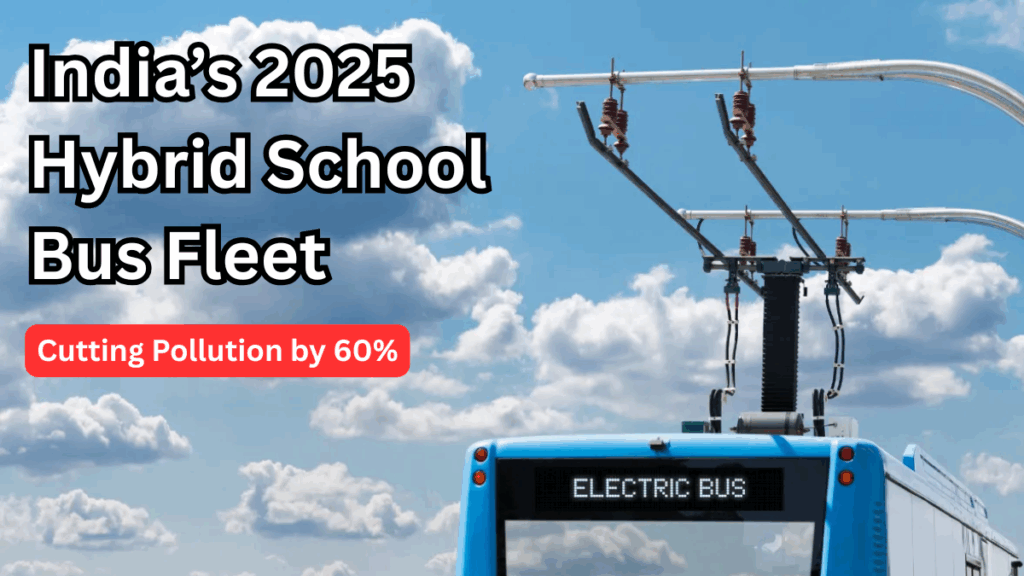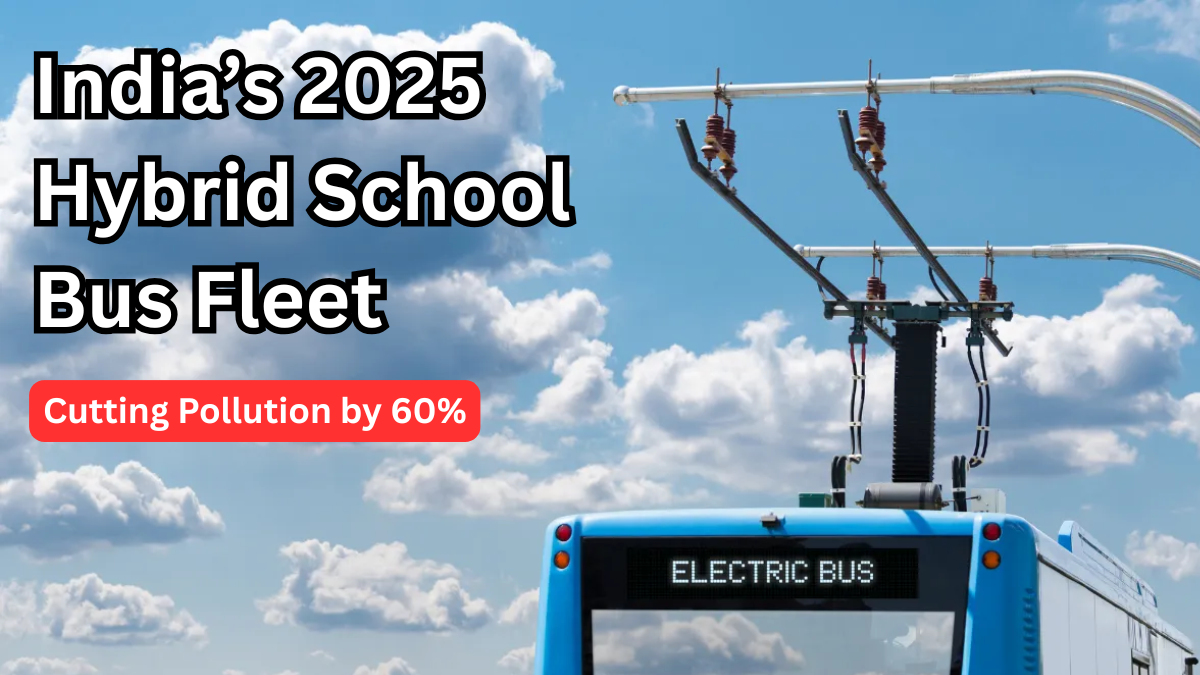India is making a bold move towards sustainable transportation in schools with the launch of the Hybrid School Bus 2025 initiative. Designed to reduce carbon emissions and promote eco-friendly commuting for students, this step aligns with the country’s vision for Green Transport India.

What is the Hybrid School Bus 2025 Initiative?
The Hybrid School Bus 2025 program introduces buses that combine traditional diesel engines with electric power. This hybrid model ensures:
-
Reduced fuel consumption by up to 40–50%
-
Lower emissions, contributing to cleaner air around schools
-
Quieter operation, ensuring a more comfortable ride for students
-
Longer vehicle lifespan due to optimized engine usage
This initiative is a part of India’s broader commitment to Green Transport India, aiming to create a safer and greener environment for the next generation.
Key Features of Hybrid School Buses
| Feature | Details | Benefit |
|---|---|---|
| Engine Type | Hybrid (Diesel + Electric) | Reduces fuel use and emissions |
| Seating Capacity | 30–50 students | Suitable for medium to large schools |
| Battery Range | 100–150 km per charge | Ideal for daily school routes |
| Safety Features | GPS tracking, ABS, CCTV | Ensures student safety |
| Pollution Reduction | Up to 60% less than conventional buses | Supports Green Transport India goals |
Environmental Impact
The introduction of hybrid school buses can significantly lower the environmental footprint of daily student transport:
-
CO2 Reduction: Each bus reduces approximately 3–4 tons of CO2 per year
-
Noise Pollution: Electric motors decrease engine noise by nearly 50%
-
Fuel Savings: Schools can save thousands of liters of diesel annually
These benefits reinforce the importance of Hybrid School Bus 2025 as a cornerstone of sustainable school transport in India.
Benefits for Schools and Parents
-
Cost Efficiency: Reduced fuel consumption translates into long-term savings
-
Enhanced Safety: Modern hybrid buses come equipped with advanced safety features
-
Eco-Friendly Image: Schools adopting hybrid buses demonstrate commitment to Green Transport India initiatives
-
Healthier Environment: Less pollution means cleaner air for children in and around school premises
Implementation Across India
The Hybrid School Bus 2025 program is being rolled out in multiple cities across India, with priority given to:
-
Urban areas with high traffic congestion
-
Schools located near pollution hotspots
-
Government and private school partnerships
Government incentives are also in place for schools adopting hybrid buses, encouraging more institutions to embrace Green Transport India principles.
FAQs
1. How much pollution can a hybrid school bus reduce?
Each bus can reduce up to 60% of emissions compared to conventional diesel buses, making a significant environmental impact.
2. Are hybrid school buses more expensive than traditional buses?
The initial cost may be higher, but long-term fuel savings and lower maintenance costs offset the investment.
3. How far can a hybrid bus travel on electric power alone?
Most hybrid school buses can cover 100–150 km on battery-assisted routes, sufficient for typical school commutes.
4. Which schools can participate in the Hybrid School Bus 2025 program?
Both government and private schools across India are eligible, with special incentives for those adopting eco-friendly fleets.
Click here to learn more
